(Glenn’s Technical Insights… used to be part of our bi-weekly newsletter but we decided to make it a regular blog post instead so it can get more visibility. It covers interesting new hardware and software developments that are generally relevant for SQL Server). It also can just be technically-oriented items that I find interesting.
AMD and Intel Financial Results for Q3 2019
Normally the financial results of tech companies is not that interesting (unless you work there or own stock in the company). In this case, looking at how AMD and Intel are doing, and comparing their relative size is relevant from an technical perspective since it may help you understand what they are doing with their products and pricing.
AMD has had their best financial quarter since 2005, with 1.8 billion dollars in revenue, and while this sounds impressive, they are still dwarfed by Intel with 19.2 billion dollars in revenue for the quarter. From a net earnings perspective, the picture is even more in Intel’s favor, with Intel posting 6.0 billion in GAAP net income, while AMD posted 120 million in net income for the quarter.
There are a couple of reasons why this matters. First, a resurgent AMD will have more money available for R & D and new product development than they did in the past, which will allow them to maintain their competitive pressure on Intel. On the other hand, Intel has the financial resources and very high margins that will let them lower prices in order to maintain their market share. In the recent past, they haven’t had to do this due to lack of competition from AMD in most market segments.
Since the release of the Zen 2 architecture (with the Ryzen 3000 series desktop processors and EPYC 7002 series server processors), AMD has been reclaiming some market share in those two segments. They have also done well with the Ryzen Threadripper 2000 series HEDT processors, and should do even better with upcoming Zen 2 based Ryzen Threadripper 3000 series HEDT processors. Intel is still doing very well in the mobile segment, which is very important to them.
We have already seen a pretty massive price decrease (over 50%) with the new Intel Cascade Lake-X HEDT processors, as I discussed here. There are pretty strong rumors that Intel is going to announce some price cuts on their mainstream desktop processors pretty soon. I wouldn’t be too surprised to see Intel announce some official price cuts on their Xeon processors in the next few months.
The point here is that AMD has developed into a serious competitor in the mainstream desktop, HEDT, and server market, while Intel is maintaining their dominance in the mobile market. This relative weakness in some segments has already caused Intel to reduce prices on some products, and their financial resources will allow them to do more of that if they want to. Intel has actually touted their financial strength as a key competitive advantage vs. AMD, which makes it even more likely they will announce price cuts on more products. This is good for consumers, but perhaps not so much for Intel stockholders.
AMD AGESA 1.0.0.4 Begins Rolling Out for Ryzen 3000 Series Processors
AGESA stands for AMD Generic Encapsulated Software Architecture. This is a procedure library that AMD developed and maintains, that is supplied to their partner motherboard vendors for use as part of the BIOS of the motherboard. AMD periodically releases new AGESA versions that contain bug fixes and performance enhancements. The motherboard vendors then take this AGESA code and incorporate it into a new BIOS version that you have to download and install on your system.
Even though this may sound trivial, it is actually pretty important if you want to get the best performance and reliability out of your system. Keeping your BIOS up to date is important, whether is is for your laptop, gaming machine, or database server. AGESA 1.0.0.4 improves system boot times by 20-30%, improves turbo clock speed performance and improves NVMe device compatibility, on top of having many other small bug fixes. If you have an AMD desktop system, you should check with your motherboard vendor over the next couple of weeks to get an updated BIOS.
This reminds me of how Tesla pushes out free OTA software updates. They recently pushed out version 2019.36.1, which included a 5% peak power increase for the Model 3, among other new features and improvements. This is the second 5% power increase they have enabled with a software update. Getting extra performance for free is a great thing, whether it is for your car or for your computer.
Intel Delays Release of Cascade Lake-X HEDT Processors
According to WCCFTech (which has a somewhat mixed record regarding rumors and leaks), Intel has decided to slightly delay the planned release of Cascade Lake- X from November 5 to November 25. The supposed reason for this is so Intel can see the pricing for the upcoming AMD Ryzen Threadripper 3000 series HEDT processors, and then decide whether they want to make any pricing adjustments to Cascade Lake-X.
Speaking of that, AMD has scheduled a “Meet The Experts” webinar on November 6, 2019, where they will cover “AMD plans for high-end desktop systems” and “The future of the high-end desktop market”, meaning it is pretty likely they will release more information about the AMD Ryzen Threadripper 3000 series during the webinar.
